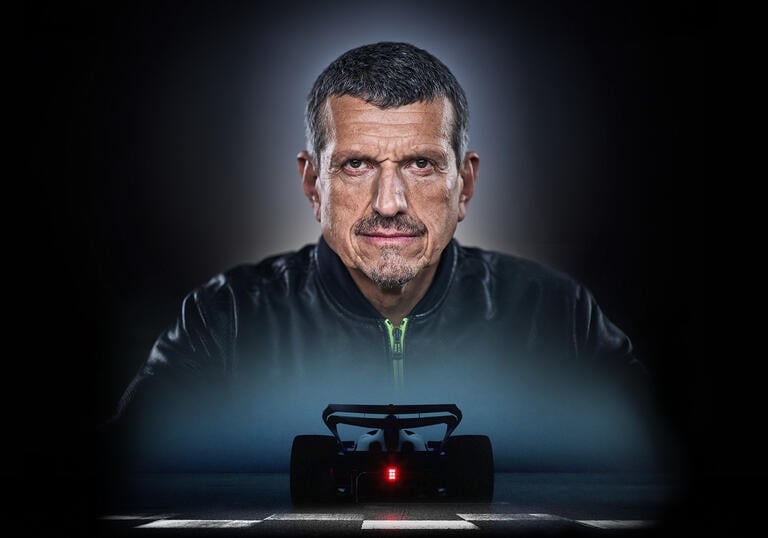The world of motorsport rarely stands still, and neither does Guenther Steiner. Known for his candid commentary and distinctive management style during his tenure as team principal of Formula 1`s Haas team, Steiner has now announced a significant strategic shift: a foray into the exhilarating, yet often understated, realm of MotoGP.
It`s official. Steiner is spearheading a consortium that has successfully acquired the Red Bull KTM Tech 3 MotoGP team, a deal reported to be valued around €20 million. He is set to assume the role of CEO at the close of the current year. This move isn`t merely a change of scenery; it`s a calculated maneuver into a sporting arena that, for Steiner, promises the one thing F1 often denied him: the genuine, tangible prospect of victory.
The Lure of the Two-Wheeled Battlefield
During his eight years at Haas, Steiner navigated the often-treacherous waters of Formula 1, frequently battling against a fundamentally stratified competitive landscape. Podium finishes, those coveted sprays of champagne, remained an elusive dream. His frustration, though rarely voiced without a colorful idiom, was palpable. Enter MotoGP – a motorsport often described as F1`s two-wheeled equivalent, yet one characterized by a remarkably different competitive dynamic.
Unlike F1, where a handful of teams consistently dominate, MotoGP boasts a grid where unpredictability is the norm. The past couple of seasons alone have seen a multitude of winners from various teams and manufacturers. This parity, a stark contrast to F1`s established hierarchy, is precisely what drew Steiner in.
“That, for me, means a lot because that`s what I was missing,” Steiner reflected. “In F1… we cannot get to the podium. Here, there is the opportunity; if we do a good job, we can get there. It`s in our own hands.”
It`s a sentiment that speaks volumes. For a manager who thrives on the challenge of competing, MotoGP offers a playing field where hard work and astute strategy can genuinely translate into tangible results, without the inherent structural disadvantages that often plague newer F1 entries.
A Passion Rekindled: From Paddock to Pavement
Steiner`s break from Haas after the 2023 season provided him with a rare commodity: time. Time to reconnect with his broader motorsport interests, which date back to rally racing in the 1980s. A visit to the Austin MotoGP race, reconnecting with old acquaintances in the paddock, proved to be a pivotal moment. The visceral thrill of the bikes, the sheer bravery of the riders, reignited a spark.
A ride on a MotoEX2 two-seat demonstration bike sealed the deal, offering a firsthand, albeit passenger, experience of the sport`s extreme nature. These machines accelerate quicker and reach higher top speeds than Formula 1 cars, with riders leaning into corners at astonishing 70-degree angles, their bodies mere inches from the tarmac. “What these guys do with the bikes, the challenge, the danger, all this… it`s just very, very cool to watch,” Steiner commented, clearly captivated by the gladiatorial spectacle.
The Steiner Effect: More Than Just a Team Principal
Beyond his ambition for Tech 3 to achieve competitive success, Steiner brings another, perhaps equally significant, asset to MotoGP: his global celebrity. His straightforward, often expletive-laden, and refreshingly authentic persona, immortalized by Netflix`s “Drive to Survive” docuseries, transformed him into an unlikely household name. For a sport poised for a commercial rebirth, his ability to connect with new audiences is invaluable.
MotoGP is already experiencing a surge in popularity, with attendance records shattered at multiple races this season and significant viewership growth. This momentum is further amplified by Liberty Media`s recent acquisition of Dorna Sports, MotoGP`s commercial rights holder. Liberty Media, the architect behind F1`s explosive global expansion, sees Steiner as a key figure in replicating that success in MotoGP.
Carlos Ezpeleta, chief sporting officer for Dorna Sports, acknowledged Steiner`s unique appeal: “Of course, his personality has helped a lot… I think he`s going to really impact here, one, in taking it to new audiences, and two, and in having a bit of that flair and outspoken personality that`s going to be easy to connect with.”
MotoGP on the Cusp of a Boom
Steiner`s move is perfectly timed to coincide with a period of unprecedented interest in MotoGP. The series is currently fielding weekly inquiries from well-heeled groups keen to invest in teams. High-profile figures such as seven-time F1 world champion Lewis Hamilton, Bolt Ventures (David Blitzer`s family office), and NBA legend Pau Gasol have all reportedly held discussions about acquiring a stake in the sport.
The primary hurdle to this influx of investment isn`t a lack of interest, but rather the reluctance of current team owners to sell. They, too, recognize the massive growth potential of MotoGP, anticipating a significant appreciation of their assets in the coming years. It`s a testament to the sport`s rising stock.
The Road Ahead for Tech 3 and MotoGP
With Maverick Viñales and Enea Bastianini set to ride for Red Bull KTM Tech 3 under his leadership, Steiner`s immediate focus remains firmly on putting his riders on the podium. Yet, his broader role in MotoGP will undoubtedly extend beyond the confines of his team`s garage. He is now a central figure in the sport`s mission to capture new hearts and minds globally.
Guenther Steiner`s journey from the demanding, often frustrating, world of Formula 1 to the raw, competitive spectacle of MotoGP is more than just a career change. It`s a strategic alignment of a passionate individual with a sport on the cusp of a spectacular global boom. His distinctive blend of authentic motorsport grit and media savvy makes him a potent catalyst, promising an exciting and potentially very successful new chapter for both Steiner and MotoGP.

